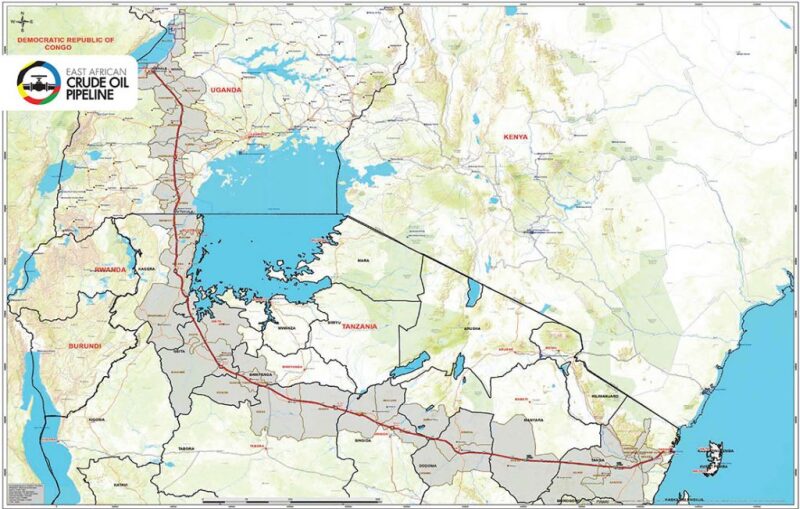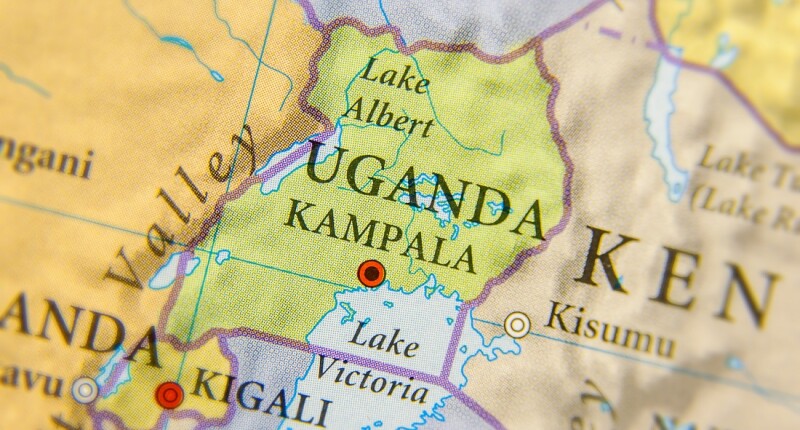The government of Tanzania has approved construction of the $3.5 billion, 1443-km East Africa Crude Oil Pipeline (EACOP) to export production beginning in 2025 from developments in Lake Albert in northwest Uganda to a facility near Tanzania’s port of Tanga on the Indian Ocean.
Tanzania’s approval of the project on 21 February followed Uganda’s move a month ago to issue a license to project operator, EACOP Ltd. Commenting in Tanzania’s business media outlet, The Citizen, EACOP Tanzania general manager Wendy Brown said that, now with Tanzania’s approval, construction will start once the “ongoing land access process” is finished.
Once completed, the EACOP pipeline will be the longest heated pipeline in the world, according to the US Department of Commerce, International Trade Administration (ITA).

France’s TotalEnergies and the China National Offshore Oil Corporation (CNOOC) declared a final investment decision in February of last year on the project which includes development of oil fields, processing facilities, and an electrically heated pipeline network. TotalEnergies holds 62% in EACOP with other shareholders — the Uganda National Oil Company (15%), Tanzania Petroleum Development Corporation (15%) and CNOOC (8%).
TotalEnergies operates the Tilenga project, while CNOOC operates the Kingfisher project. Together, these two developments are expected to deliver a combined production of 230,000 B/D at plateau, according to TotalEnergies.
The Petroleum Authority of Uganda tweeted that the first of four wells planned in the Kingfisher project area would be spudded in late January, according to Radio France Internationale. The discovery of commercial reserves of petroleum under Uganda’s Lake Albert was confirmed nearly 2 decades ago, but production has been repeatedly delayed because of a lack of infrastructure.
Approximately 1.4 billion of Uganda’s 6.5 billion bbl of proven oil reserves, located mostly on its western border with the Democratic Republic of the Congo, are estimated to be economically recoverable, according to the ITA’s most recent report issued in August 2022. The Ugandan government expects to attract several billion dollars of infrastructure investment to support its oil production.
EACOP will transport Uganda’s crude oil from Hoima, Uganda, to the Chongoleani peninsula near Tanga port in Tanzania. The pipeline will have a peak capacity of 246,000 B/D, according to the project’s website.
Following Tanzania’s approval of the project, rights campaigners and environmental groups opposing the project demonstrated in Paris outside the French offices of Japan’s Sumitomo Mitsui Banking Corporation (SMBC) and Britain’s Standard Chartered.
SMBC is financial adviser to EACOP’s operators, together with South Africa’s Standard Bank. Standard Chartered has reportedly expressed interest in financing the project, The Citizen reported.


